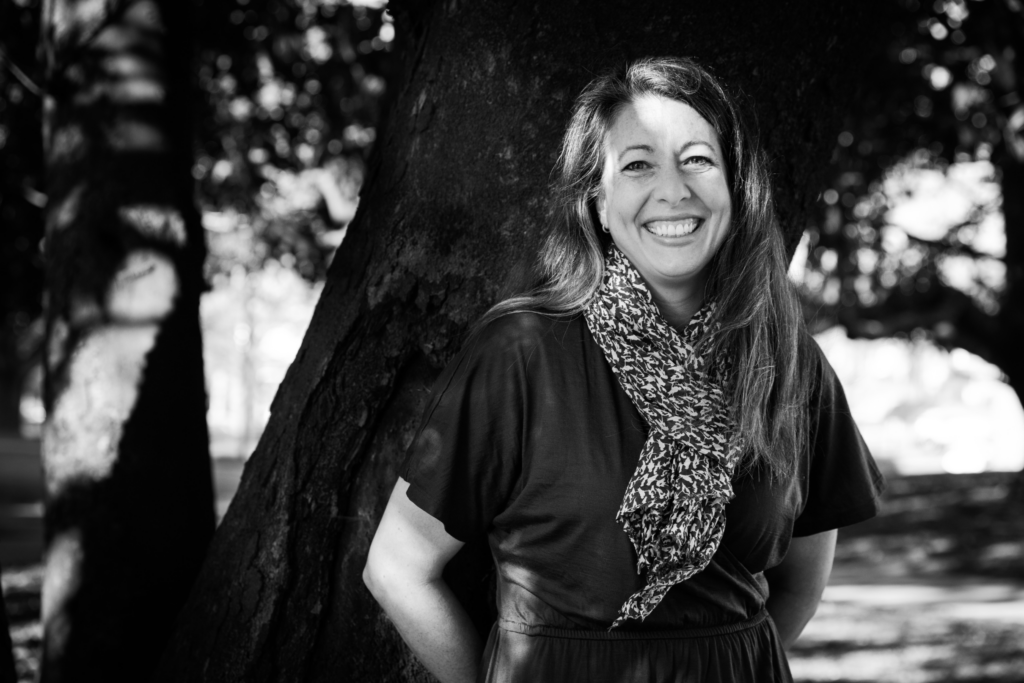This website uses cookies. Find out more in our Privacy Policy.
For Nicole Stamant, literature is about self-discovery.
“I think we do ourselves a disservice thinking of our identities as one-dimensional,” she says. “We’re constantly branching out, exposing ourselves to new realizations and new understandings. We know the importance of learning about the world and also about ourselves. Literature can help us do that.”
Stamant, an English professor at Agnes Scott College, has a long history of exploring new perspectives. There was her early work in disability studies, inspired by one of her undergraduate mentors, as well as her study of gender and women’s issues. There was her 2022 book, Memoirs of Race, Color, and Belonging (“the book I needed to write,” she says), which enabled her to get in touch with her mother’s experiences as an African-American woman.
Now, she’ll get yet another opportunity, having recently been selected as a lifelong Fuller E. Callaway Professorial Chair. Stamant is only the second Agnes Scott faculty member to be so honored.
The Fuller E. Callaway Professorial Trust was established in 1968 by the Callaway Foundation, Inc. to encourage the enrichment of academic programs at designated Georgia colleges. The Callaway Professorial Chair aims to help these institutions add and retain exemplary faculty members. The chairs are named to honor Georgia native and textile industrialist Fuller E. Callaway, Sr., in recognition of his profound interest in education.
“I hope this gives me the opportunity to continue to do the kind of meaningful work in Life Writing Studies that I have been doing, writing about how people from historically marginalized backgrounds conceptualize and articulate their experiences,” she says. “I will also continue to foster students’ critical thinking skills, supporting them as they grow more confident in engaging ‘the social and intellectual challenges of our time,’ which are myriad and complex and will require their bravery, innovation and unique perspectives.”
“I will also continue to foster students’ critical thinking skills, supporting them as they grow more confident in engaging ‘the social and intellectual challenges of our time,’ which are myriad and complex and will require their bravery, innovation and unique perspectives.”
Nicole Stamant

Stamant poses for a shot on campus
One of the ways she works to help them do that is through unconventional writing assignments. “Students often explore their identities by writing about the things they feel and think,” she explains. “Meanwhile, they’re learning transferrable skills such as how to do proper research and how to support their arguments with facts. I think those disciplines are vital in a complex world where it’s sometimes hard to separate truth from opinion.”
Stamant finds that sometimes her best teachers are the students themselves. “Every time I teach a course, I come away with new ways of thinking,” she says. “They help me as much as I help them.”